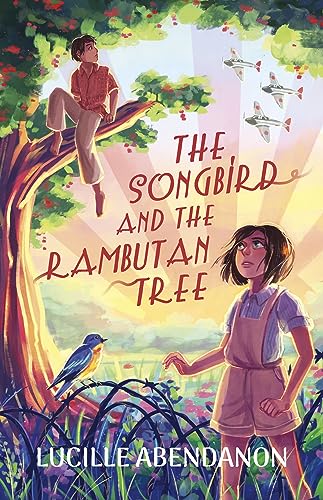The Songbird and the Rambutan Tree
Abendanon draws loosely from her grandmother’s experience in a World War II internment camp in Dutch East India, now Indonesia, to present a gripping account of a little-known episode in that war. Before Japan invades the Dutch colony in 1942, 11-year-old Emmy lives a privileged life, with a large house in the colonial capital of Batavia (now Jakarta) and her servant’s son, Bakti, as her loyal playmate. She doesn’t question why Bakti, who is Javanese, must ride in a separate tram car and cannot attend school. Instead, she’s trying to outshine her haughty, wealthier classmate Violet and avoid being sent to music school in England. Then Bakti runs off to join the Japanese, believing the invaders will liberate his people from Dutch rule. Emmy and her neighbors, including Violet, are taken to an internment camp in the suburb of Tjideng, where women and children are separated from the men, and boys are sent for hard labor as soon as they turn ten. Among the women and girls, Emmy makes new friends and engages in acts of resistance small and large, ultimately taking a harrowing journey into the city to save Violet’s life.
Abendanon presents the nuances of colonialism through the eyes of a child initially unaware of her privilege until it is taken away. Through Javanese secondary characters, readers see the growing resistance to colonial occupation, whether by the Netherlands or Japan. Within the camp, Emmy emerges as a strong presence as she takes on leadership roles, confronts the guilt she feels for the accident that led to her mother’s death, and rediscovers her joy in singing. Readers will cheer for her during her journey to herself in the worst of times.










